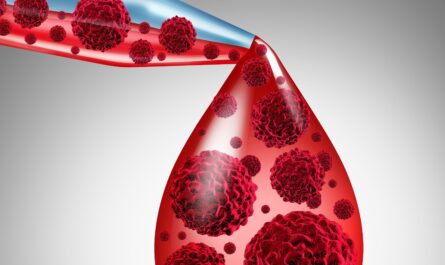The global Treatment Resistant Depression Market is estimated to be valued at US$ 1,180.0 Mn in 2022 and is expected to exhibit a CAGR of 3.4% over the forecast period of 2022 to 2030, as highlighted in a new report published by Coherent Market Insights.
Market Overview:
Treatment-resistant depression refers to a form of depression that does not respond to standard antidepressant medications. This market primarily includes various pharmaceutical products and therapies aimed at providing effective treatment options for patients with treatment-resistant depression. These products and therapies offer the advantage of improved outcomes and quality of life for individuals suffering from this condition. With the rising prevalence of depression worldwide and a growing need for more targeted and personalized treatment approaches, the treatment-resistant depression market is expected to witness significant growth.
Market Key Trends:
One of the key trends in the treatment-resistant depression market is the increasing adoption of novel therapies such as esketamine. Esketamine, sold under the brand name Spravato, is an intranasal medication recently approved by the U.S. Food and Drug Administration (FDA) for the treatment of treatment-resistant depression. It acts as a rapid-acting antidepressant and has shown promising results in clinical trials. The approval of esketamine represents a major breakthrough in the field of psychiatry and has opened avenues for innovative treatment options for patients with this condition. The market is witnessing growing interest and investment in the development of similar rapid-acting antidepressant therapies, driving the market growth.
Porter’s Analysis
The Treatment Resistant Depression market is expected to experience significant growth, exhibiting a CAGR of 3.4% from 2022 to 2030. This growth can be attributed to various factors such as the increasing prevalence of treatment-resistant depression and the development of new and innovative therapies.
Threat of new entrants: The threat of new entrants in the Treatment Resistant Depression market is relatively low. This is mainly due to the high entry barriers such as the stringent regulatory requirements for drug approval and the high costs associated with research and development. Established players in the market have a strong foothold and significant market share, making it difficult for new entrants to compete.
Bargaining power of buyers: The bargaining power of buyers in the Treatment Resistant Depression market is moderate. While buyers have the power to choose from a variety of treatment options, there are limited alternatives available for treatment-resistant depression. This gives the suppliers an advantage in negotiations.
Bargaining power of suppliers: The bargaining power of suppliers in the Treatment Resistant Depression market is moderate. There are a few major pharmaceutical companies that dominate the market and control the supply of drugs. However, the presence of generic alternatives and increasing competition among suppliers helps to balance the power dynamics.
Threat of new substitutes: The threat of new substitutes in the Treatment Resistant Depression market is low. Currently, there are limited alternatives available for the treatment of treatment-resistant depression, and pharmaceutical drugs remain the primary mode of treatment.
Competitive rivalry: The competitive rivalry in the Treatment Resistant Depression market is high. The market is dominated by major pharmaceutical companies such as AbbVie Inc., Eli Lilly and Company, and Pfizer Inc. These companies compete with each other to gain market share through product innovation, acquisitions, and partnerships.
Key Takeaways
The global Treatment Resistant Depression Market Demand is expected to witness high growth, exhibiting a CAGR of 3.4% from 2022 to 2030. This growth is driven by the increasing prevalence of treatment-resistant depression and the development of new therapies.
In terms of regional analysis, North America is expected to emerge as the fastest-growing and dominating region in the Treatment Resistant Depression market. This can be attributed to the high prevalence of depression, increasing awareness about mental health, and the availability of advanced healthcare infrastructure in the region.
Key players operating in the Treatment Resistant Depression market include AbbVie Inc., Eli Lilly and Company, and Pfizer Inc. These companies are actively involved in product development, collaborations, and acquisitions to gain a competitive edge in the market.
*Note:
1. Source: Coherent Market Insights, Public sources, Desk research
2. We have leveraged AI tools to mine information and compile it


